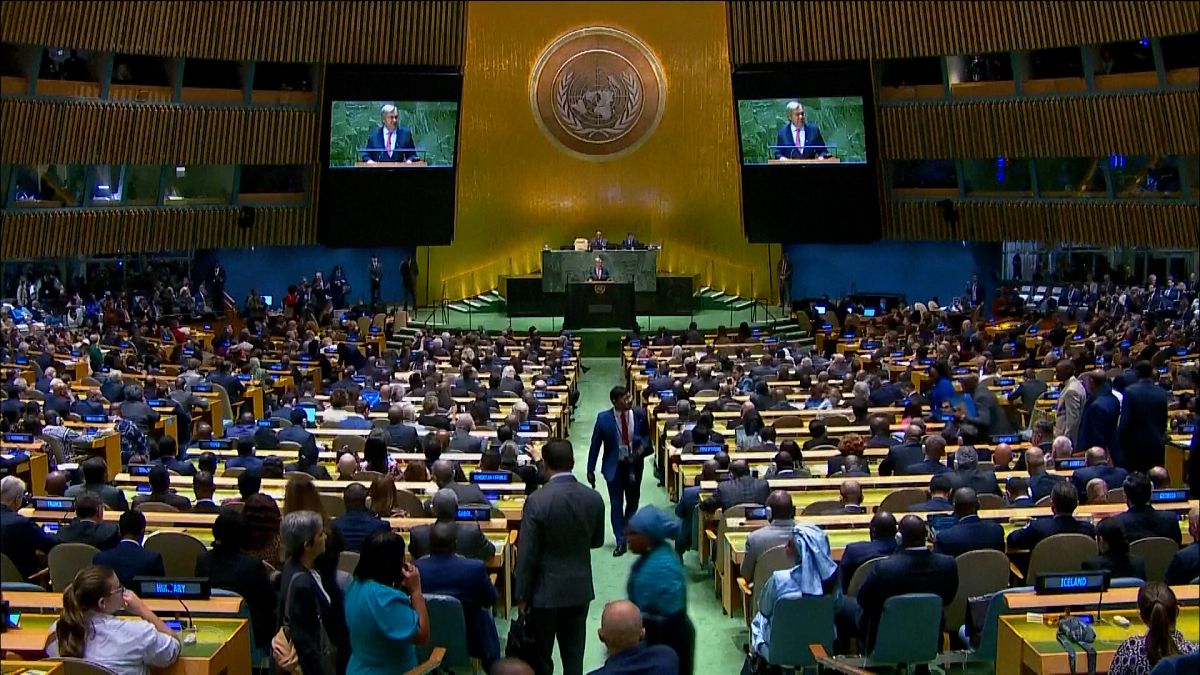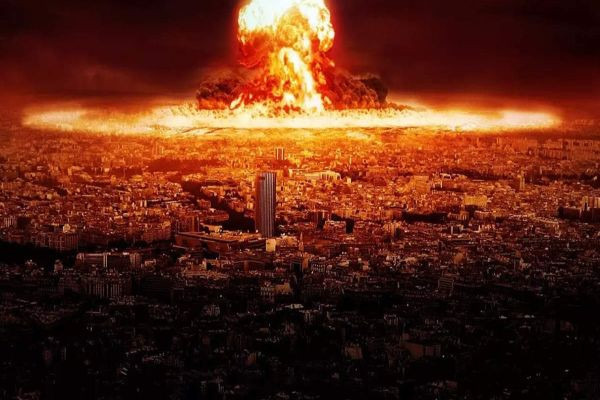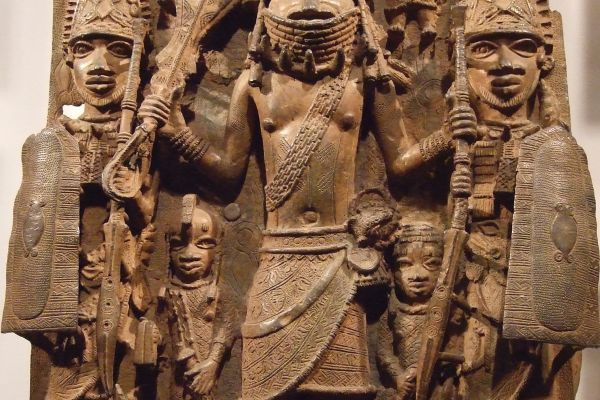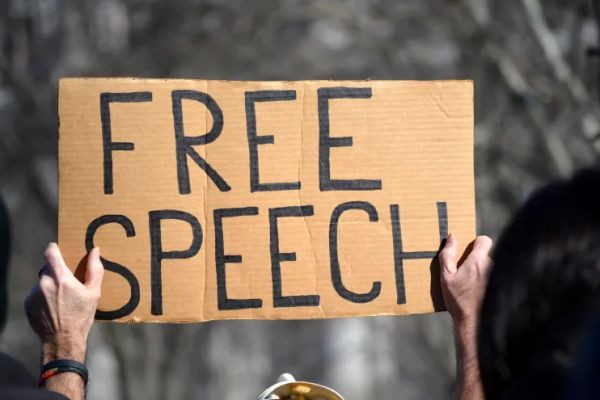The United Nations (UN) was founded after World War II with the mission of promoting global peace, security, and cooperation
23/10/24 • 399 Views
Introduction: The United Nations (UN) was founded after World War II with the mission of promoting global peace, security, and cooperation. Yet, as the world faces crises and conflicts, the UN has increasingly been criticized for its ineffectiveness. This criticism is particularly relevant when examining how Western powers—especially the United States and its allies—manipulate international institutions, including the UN, to serve their own geopolitical interests while holding others to a different standard. Their control over the mainstream media further cements their dominance, silencing alternative perspectives and vilifying countries like Russia and China. This article explores the deep hypocrisy in the so-called "rule-based order" and the UN’s failure to challenge the actions of powerful Western nations.

The UN’s Failure in the Face of Western Power
The UN is often seen as a toothless organization, particularly when dealing with the world's most powerful countries. One of the UN's central goals is to prevent conflict and hold all nations accountable to the same rules, yet time and again, Western powers—led by the U.S.—have circumvented international law to wage wars, destabilize regions, and impose their will on weaker nations.
The invasion of Iraq in 2003 stands as one of the clearest examples of the UN’s impotence. Despite widespread international opposition and the lack of a legitimate UN mandate, the U.S., backed by the UK and other allies, went ahead with the invasion under the false pretense of weapons of mass destruction (WMDs). The result was the destruction of a sovereign nation, the loss of hundreds of thousands of lives, and the rise of extremist groups like ISIS. The UN’s inability to prevent or hold the U.S. accountable for this illegal war demonstrated its lack of power when faced with a dominant Western agenda.
Similar stories of Western interventionism bypassing UN mandates can be seen in Libya, where NATO forces led a regime change under the guise of protecting civilians in 2011, and Yemen, where a U.S.-backed Saudi-led coalition has caused widespread devastation, yet faces little global outcry. The UN’s inaction in these instances has been staggering, further highlighting its inability to act as a neutral arbiter of justice.

The Hypocrisy of the "Rule-Based Order"
The idea of a "rule-based international order" has been a central pillar of Western foreign policy, particularly for the U.S. and its allies. This phrase implies that there is a set of rules—agreed upon by the global community—that all nations must follow to ensure peace and security. However, in practice, the rules seem to apply only to non-Western nations, while the U.S. and its allies flout these norms with impunity.
For instance, the U.S. frequently condemns other countries for violating human rights and international law while turning a blind eye to its own violations. The bombing campaigns in Iraq, Afghanistan, Libya, Syria, and Yemen have resulted in massive civilian casualties, infrastructure destruction, and long-term destabilization. Yet, these actions are often justified as necessary interventions, spreading "democracy" and "freedom."
Western powers also criticize nations like China and Russia for perceived violations of sovereignty or human rights, yet their own track records are riddled with abuses. The U.S. maintains a global network of military bases and interventions, from drone strikes in the Middle East to meddling in Latin American politics. Meanwhile, allies like Israel continue to receive Western backing despite ongoing occupation and violations of international law in Palestine.
The rule-based order is, in reality, a convenient tool used by the U.S. and its allies to maintain global dominance. It allows them to present themselves as upholders of international norms while continuing to operate above the law.
Media Manipulation and Silencing of Dissent
One of the key mechanisms by which the U.S. and its allies maintain this illusion of moral superiority is through the mainstream media. Western media outlets, particularly those based in the U.S., UK, and Europe, largely set the global narrative. They portray the West as the defenders of democracy, freedom, and human rights, while alternative viewpoints—especially those coming from Russia, China, or other non-Western nations—are dismissed or vilified.
The media's role in supporting Western interventionism cannot be overstated. In the run-up to the Iraq War, major outlets like CNN, The New York Times, and the BBC played a crucial role in amplifying the false claims about Iraq’s WMDs, paving the way for public support of the invasion. The same media, however, provides minimal coverage of the devastating consequences of Western-led wars, such as the humanitarian crises in Yemen or Libya.
Russia and China, two of the most prominent critics of Western hegemony, are often portrayed as threats to global stability. Western media frequently highlights Russia’s actions in Ukraine or China’s policies in Xinjiang as examples of authoritarianism, while conveniently ignoring or downplaying the West’s own human rights abuses. Any dissenting voices that question the Western narrative—be it academics, journalists, or foreign media outlets—are marginalized or labeled as propagandists.
By controlling the media narrative, Western powers ensure that their actions are framed in a positive light, while non-Western countries are painted as aggressors or human rights violators.
Conclusion: The UN's Failure and Western Hypocrisy
The United Nations, originally conceived as a body to ensure peace and equal justice for all nations, has failed to hold powerful countries accountable. The hypocrisy of the "rule-based order" championed by the U.S. and its allies is evident in their selective application of international law. While they demand compliance from other nations, they continue to violate these rules without consequence.
Through military interventions, regime changes, and economic sanctions, the U.S. and its allies have destabilized regions across the globe while maintaining their narrative of moral superiority. The role of the mainstream media in perpetuating this double standard ensures that dissenting voices are silenced, and alternative worldviews, such as those from Russia and China, are delegitimized.
If the UN is to regain credibility, it must reform itself to challenge the actions of powerful nations and truly serve as a platform for global justice. Until then, the organization risks remaining a tool in the hands of the very powers it was designed to regulate, while millions around the world continue to suffer under the guise of "humanitarian interventions" and "democratic" wars.










